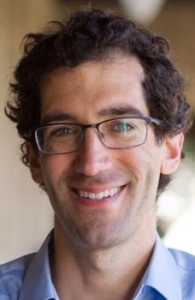A Profile of Author Daniel Mason
by Anne Newins

Anne Newins
One of the pleasures of volunteering in the RVM library is the opportunity to discover new authors. About six months ago, I encountered Daniel Mason and quickly became entranced by his writing. The New York Times Magazine states that Mason “has quietly emerged as one of the finest prose stylists in American fiction.”
Mason’s background is almost as interesting as his writing. After graduating from Harvard, he spent a year studying malaria around Thailand and Myanmar. This experience informed his first novel, The Piano Tuner, which was published by the time he was 26 years old and then turned into an opera. He attended medical school at the University of California San Francisco, eventually becoming a psychiatrist. He now is on the faculty of Stanford University, both teaching and practicing medicine.
Not an especially prolific writer, Mason’s complex fiction cannot be easily defined. Most of his writing to date has accurate historical components. His descriptions of the natural world are both precise and poetic. He incorporates vivid and occasionally appalling, descriptions of early medical practices. Asked how being a psychiatrist relates to his writing, Mason stated in an interview with ZYZZYVA, that “If there is a connection, I think it is this sense that human beings are mysteries. Since I was young, human beings have always been puzzling to me. If anything, this interest drove me to both fields.”
Below are synopses of three of his books:
The Piano Tuner (2002) is the journey of a middle-aged piano tuner summoned from England to tune an English army surgeon’s Erard grand piano in the jungles of Burma. Taking place in 1886, the British Empire is attempting to quell native insurgencies and repel French incursions in the Mekong Delta. Although not perfect, this was a powerful first novel. Fellow author Andrea Barrett praised “his ability to embrace history, politics, nature and medicine within a fully imagined 19th-century fictional world.”
The Winter Soldier tells of a Viennese medical student, Lucius. “Resentful of hierarchy, impatient for his training to come to an end,” Lucius joins the army when World War I begins. To his surprise, he is sent to a field hospital in the Carpathian Mountains, where he is the only physician, depending on a mysterious nursing sister to help when the multitudes of injured soldiers arrive. Having never held a scalpel, it is left to Sister Margarete to teach him field surgery. Lucius’s story is contained within the tides of war, as well a tale of love and atonement. As in The Piano Tuner, the historical detail will be appreciated by those unfamiliar with these particular events in history.
A Registry of My Passage on the Earth (2020) is the title of one of nine of highly varied short stories. Each of the tales has some seed of historical fact, but they go grow into wildly different creations. The characters include naturalist Alfred Russell Wallace, pugilists, a women balloonist, telegraph operators, an amnesic, and more. All are chronicles of exploration, internal and external. My favorite was The Miraculous Discovery of Psammtetichus I, a darkly humorous yarn of an Egyptian pharaoh’s efforts to develop scientific methods. The collection was a finalist for the Pulitzer Prize and won several other prizes.
The Winter Solder and A Registry of My Passage on the Earth now are available at the Manor library. The Piano Tuner will be added to the collection in late February. All of Mason’s books are held at the county library in various formats.



Anne, thanks for the article, and for all you do for the RVM Library. Your review of Daniel Mason is welcome since I am often on the lookout for offbeat fiction.
-Sophia